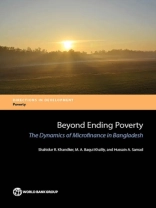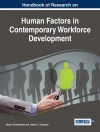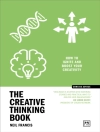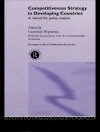The recent past has witnessed phenomenal growth in microfinance institutions (MFIs) around the world. Today, as many as 200 million people are beneficiaries of microfinance. With its worldwide attention, microfinance has also received serious criticism, including that it is a fad with less-than-expected benefits for the poor. Surely, microfinance is not without limitations. Yet the premise of improving access by the poor to financial services for consumption smoothing has never been a subject of controversy. What has been controversial is whether microfinance can alleviate poverty. That the poor lack an effective and affordable alternative financing mechanism to support income generation does not necessarily mean microfinance is a panacea, since it involves entrepreneurial skills, which many poor people lack. It is little wonder that studies evaluating the benefits of microfinance have produced conflicting results. Study findings are contextual: They are positive in conducive environments and less so in unfavorable ones. Microfinance must be distinguished from antipoverty schemes (e.g., conditional cash transfers) because benefits from microfinance-supported activities, which involve participants’ entrepreneurial skills and ability, take time to be realized.Beyond Ending Poverty: The Dynamics of Microfinance in Bangladesh uses household long panel surveys from 1991/92 to 2010/11 in Bangladesh to address some of the criticisms of microfinance-including whether pushing microfinance has made it redundant as a tool for poverty reduction-while investigating whether it still matters for the poor after two decades of extensive growth. The book’s findings confirm the positive effects of continued borrowing from microfinance programs. Despite a substantial increase in microfinance borrowing, loan recovery has not declined and long-term borrowers are not trapped in poverty or debt. Interest rates charged by MFIs are not too high for realizing returns on investment, although the MFIs have scope for lowering them. Beyond Ending Poverty is expected to contribute to the ongoing debate on the cost-effectiveness of microfinance as a tool for inclusive growth and development. The book is expected to fill knowledge gaps in understanding the various virtues of microfinance against its portrayal as having drifted from its original poverty-reduction mission.
M.A. Baqui Khalily & Shahidur R. Khandker
Beyond Ending Poverty [EPUB ebook]
The Dynamics of Microfinance in Bangladesh
Beyond Ending Poverty [EPUB ebook]
The Dynamics of Microfinance in Bangladesh
Koop dit e-boek en ontvang er nog 1 GRATIS!
Taal Engels ● Formaat EPUB ● ISBN 9781464808951 ● Uitgeverij World Bank Publications ● Gepubliceerd 2016 ● Downloadbare 3 keer ● Valuta EUR ● ID 5894827 ● Kopieerbeveiliging Adobe DRM
Vereist een DRM-compatibele e-boeklezer












